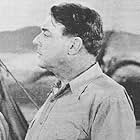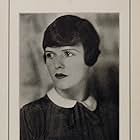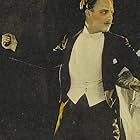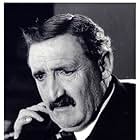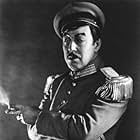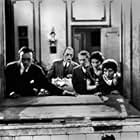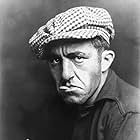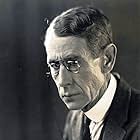A soldier inaccurately reported as dead returns home to his Spanish family's estate in California, only to find his father deceased and his ancestral land in the hands of strangers.A soldier inaccurately reported as dead returns home to his Spanish family's estate in California, only to find his father deceased and his ancestral land in the hands of strangers.A soldier inaccurately reported as dead returns home to his Spanish family's estate in California, only to find his father deceased and his ancestral land in the hands of strangers.
James O. Barrows
- Father Dominic
- (as James Barrows)
Joseph J. Dowling
- Don Miguel
- (as Joseph Dowling)
Anna Dodge
- Caroline
- (as Mrs. George Hernandez)
Robert Dudley
- Banker
- (uncredited)
- Director
- Writers
- All cast & crew
- Production, box office & more at IMDbPro
Featured review
I rather think "magic sentimentalism" would describe Borzage better than "magic realism". With Ford and Capra, he is one of the earliest cinematic peddlers of the American Dream (what might be characterised as the immigrants' idealised view) which gives him very little in common with Jean Renoir or Marcel Carné.
The immigrant's idealised view was however in its turn rather selective about those immigrants it liked and those it didn't really care for. Ford made a lot of fuss about the Chinese workers (some the men who had originally built the Transcontinental) employed on the film The Iron Horse but never gives them any role at all in the film beyond that of anonymous coolies while privileging the Irish and the Italians (with a preference naturally in Ford's case for the Irish) about whom the film the film waxes painfully sentimental.
But, if he has no real interest in the Chinese, Ford does at least acknowledge that they did the work his film credits to the other immigrant communities even if he does not bother to make clear how crucial their role actually was.
This film is sentimental enough about Mexicans in California even if it is somewhat ambiguous even there (they are characterised, as nearly always in Californian mythology, as victims of their own fecklessness)but when it comes to Japs and Chinks it is altogether a different matter. What a very nasty hypocritical little film, it is.
The 1924 Immigration Act would effectively ban Japanese immigration. There was of course no such thing as Japanese "colonisation" in the US; the Japanese had been imported to replace the Chinese whose immigration had been banned since 1882 (Chinese Exclusion Act). During these "yellow peril" years, Swede Warner Oland was in constant demand as sinister orientals (starting with the German-funded anti-Jap serial Patria in 1917) but even as big a star as Sessue Hayakawa became sickened at the prejudice and moved to France.
Of course all this anti-immigration sentiment was long in the past. The offensive legislation was repealed....in 1966! And, with regard to the internment of Japanese Americans in the Seond World War, the US accepted that there had been a "fundamental violations of the basic civil liberties and constitutional rights"...in 1988!
Provided you don't have slitty eyes (and not black of course), the US, it is well known, is a place where, however desperate your troubles may appear, there is always a benevolent millionaire around the corner or a competition of some sot to be won.
American Dream mon cul!
The immigrant's idealised view was however in its turn rather selective about those immigrants it liked and those it didn't really care for. Ford made a lot of fuss about the Chinese workers (some the men who had originally built the Transcontinental) employed on the film The Iron Horse but never gives them any role at all in the film beyond that of anonymous coolies while privileging the Irish and the Italians (with a preference naturally in Ford's case for the Irish) about whom the film the film waxes painfully sentimental.
But, if he has no real interest in the Chinese, Ford does at least acknowledge that they did the work his film credits to the other immigrant communities even if he does not bother to make clear how crucial their role actually was.
This film is sentimental enough about Mexicans in California even if it is somewhat ambiguous even there (they are characterised, as nearly always in Californian mythology, as victims of their own fecklessness)but when it comes to Japs and Chinks it is altogether a different matter. What a very nasty hypocritical little film, it is.
The 1924 Immigration Act would effectively ban Japanese immigration. There was of course no such thing as Japanese "colonisation" in the US; the Japanese had been imported to replace the Chinese whose immigration had been banned since 1882 (Chinese Exclusion Act). During these "yellow peril" years, Swede Warner Oland was in constant demand as sinister orientals (starting with the German-funded anti-Jap serial Patria in 1917) but even as big a star as Sessue Hayakawa became sickened at the prejudice and moved to France.
Of course all this anti-immigration sentiment was long in the past. The offensive legislation was repealed....in 1966! And, with regard to the internment of Japanese Americans in the Seond World War, the US accepted that there had been a "fundamental violations of the basic civil liberties and constitutional rights"...in 1988!
Provided you don't have slitty eyes (and not black of course), the US, it is well known, is a place where, however desperate your troubles may appear, there is always a benevolent millionaire around the corner or a competition of some sot to be won.
American Dream mon cul!
Storyline
Details
- Runtime1 hour 40 minutes
- Sound mix
- Aspect ratio
- 1.33 : 1
Contribute to this page
Suggest an edit or add missing content


